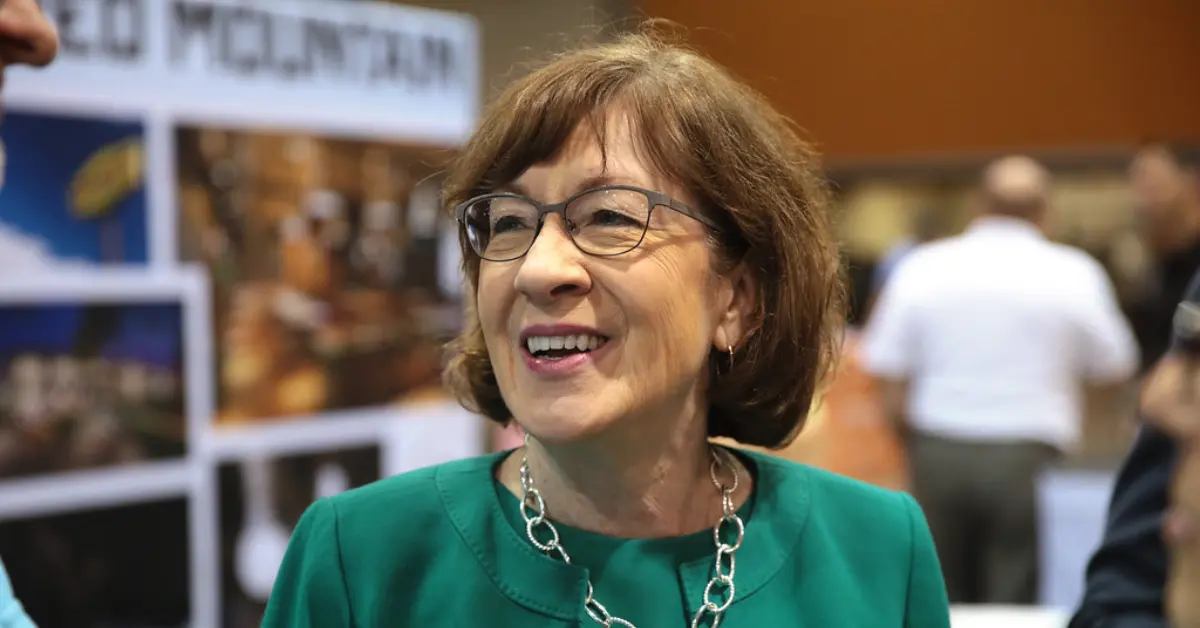Amendment Would Fund Rural Hospital Relief Amid Medicaid Cuts
Eighteen Republican senators, including former Senate Republican Leader Mitch McConnell from Kentucky, voted in favor of a proposal that would increase taxes on the richest people in the country. The goal of “18 GOP senators vote to increase tax on the rich” is to provide financial support for rural hospitals that are facing severe cuts to their Medicaid funding. This decision is notable because it goes against the usual Republican stance of opposing tax hikes.
Senate Republicans recently voted to support a proposal put forward by Senator Susan Collins from Maine. This proposal aims to create a new tax bracket of 39.6 percent for individuals who make over $25 million a year and for married couples earning more than $50 million annually.
Amendment Details and Vote Results
Tax Bracket Proposal
The Collins amendment proposes a new tax level aimed at very wealthy individuals. The money raised from this tax would be used to help support hospitals in rural areas.
Funding Impact
The plan aims to increase the money available for rural hospitals in a major GOP bill, boosting the fund from $25 billion to $50 billion.
Vote Outcome
The motion being discussed did not pass, with a clear majority voting against it—22 in favor and 78 opposed. This outcome caught some people in the Senate by surprise, especially considering that many Republicans had backed the motion.
Republican Senators Who Supported the Measure
The following Republican senators voted to waive the point-of-order objection against the Collins proposal:
- Sen. Shelley Moore Capito (W.Va.)
- Sen. Bill Cassidy (La.)
- Sen. John Curtis (Utah)
- Sen. Deb Fischer (Neb.)
- Sen. Lindsey Graham (S.C.)
- Sen. Josh Hawley (Mo.)
- Sen. Jon Husted (Ohio)
- Sen. Cindy Hyde-Smith (Miss.)
- Sen. John Kennedy (La.)
- Sen. Roger Marshall (Kan.)
- Sen. Mitch McConnell (Ky.)
- Sen. Jerry Moran (Kan.)
- Sen. Bernie Moreno (Ohio)
- Sen. Lisa Murkowski (Alaska)
- Sen. Dan Sullivan (Alaska)
- Sen. Roger Wicker (Miss.)
- Sen. Todd Young (Ind.)
Collins also agreed to set aside a rule that would have stopped her proposal from being discussed.
Political Implications and Party Reaction
GOP Aide Expresses Shock
A senior Republican staff member was surprised to see that many members of their party agreed to increase taxes, even if it only affected the richest people in the country.
“There was a time when Republicans were very strict about not raising taxes. I’m sure Grover Norquist, who leads a group called Americans for Tax Reform, is really frustrated by this,” said the aide. This group encourages lawmakers to promise they won’t increase taxes.
Trump’s Influence on Republican Tax Policy
“I suppose this is what we can call Donald Trump’s version of the Republican Party,” the source noted, pointing to the way Trump emphasizes policies that focus on the needs of everyday people.
The vote shows a change in how Republicans approach taxes, matching what President Trump has recently said about taxing wealthy Americans.
Background: Trump’s Position on Wealthy Tax Increases
Recent Social Media Statement
Last month, Trump posted on social media that he would be fine with increasing taxes for the richest people in the United States.
Oval Office Comments
Last month, Trump brought up the topic again during a meeting in the Oval Office. He was discussing the idea of raising taxes on the richest people to help provide tax cuts for middle-class and working-class families.
“I would love to do that, frankly,” Trump told reporters.
Context: Anti-Tax Advocacy and Republican Tradition
The vote marks a significant change from the usual Republican stance against raising taxes. This is especially surprising considering the strong impact of groups like Americans for Tax Reform, which has long held a powerful role in shaping Republican views on taxes by promoting pledges not to raise them.
Also Read –
5 Potential Candidates Trump Might Choose to Replace Powell at the Federal Reserve
